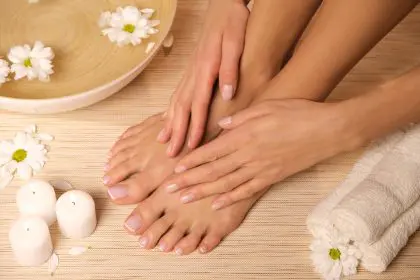
Dr. Yolanda Ragland is a doctor of podiatric medicine. A podiatric reconstruction forefoot surgeon, Dr. Ragland maintains offices in New York City on Park Avenue and one in downtown Silver Spring, Maryland. She focuses on bunion and hammer toe correction. Her trade secret, the Tiara Toe technique leaves patients with sandal-ready feet and little to no visible scarring after the surgical procedure.
Dr. Ragland began her education with a Bachelor’s of Science from the University of Maryland, College Park. There, she also completed a fellowship in the dermatology branch of the National Cancer Institute under Dr. Stephen Katzs at the National Institute of Health. She obtained a Doctor of Podiatric Medicine (DPM) from the New York College of Podiatric Medicine. She is also certified in Surgical Training through the academic affiliate of Weil Medical College of Cornell University.
For over a decade, Dr. Ragland has been providing medical services with a pleasing cosmetic result. Here, she offers tips on daily foot care and how to know if you are getting the best foot care and pedicure options available.
What is a good daily foot care regimen?
Daily foot care should include cleaning and drying the foot thoroughly and in between the toes. Using a daily moisturizer is essential to keeping the foot supple, soft and healthy looking. However, moisturizer is not necessary to use in between the toes. This area is vulnerable to microbial infections and keeping dry is the best defense.
Are routine pedicures a good thing? What are your thoughts about the pedicure rasp (the cheese grater type object) used for crusty heels?
Routine pedicures are a must, but with caution. Whether you are giving yourself a pedicure or going to a salon, many precautions should be taken. Listed are key cautions to adhere to:
- Avoid whirlpool type soaks. The jets that propel the water are havens for microbial growth like bacteria and fungus.
- Choose your nail salon based on sanitation. Make sure the instruments are sterilized and not just clean, especially if you have a history of fungal infection like athlete’s foot or fungal nail. Simple sanitation will not rid fungus contamination. In order for the instruments to be sterile, they must be pressurized in extreme heat. This pressure-cooking instrument sterilizer is called an autoclave. A meager UV light with minimal heat will not kill fungal spores.
- Never use sharp debridement on the skin of your feet. Sharp debridement is anything that is considered a blade. This includes but is not limited to, razors, scalpels, and cheese cutter type instruments such as graters and nail nippers. A rule of thumb is if it is a metal device [and] it is a sharp device, leave that type of shaving to a medical professional.
- Do not cut into the corners of your toenail. Cutting your toenails too short or cutting the nails out of the corner will encourage ingrown nails and can be painful and lead to infection
- Avoid nail salons all together if you have certain medical conditions. If you are diabetic, have neuropathy and if you are taking blood thinners you should not entertain services from a run of the mill nail salon. Perhaps a medi-spa, which is staffed with medical professionals is a better option. However, only go under the advice of your medical doctor.
For more information, visit FixYourFeet.com or call 1 (877) 403-1929.










